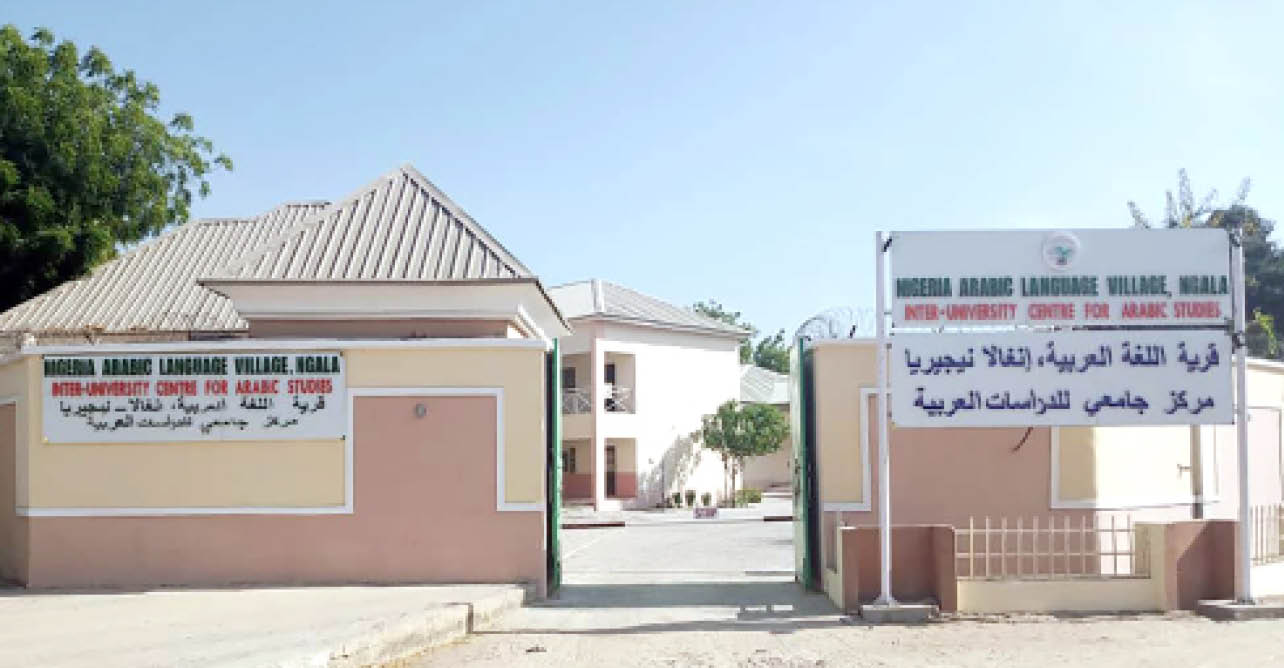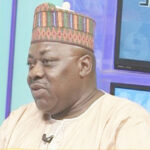Wednesday, October 20, 2021 and Thursday October 21, 2021 went down last week as two important days that would remain indelible in the history of the Nigeria Arabic Language Village (NALV). The occasion was the coming together of more than a dozen serving Professors of Arabic in Nigeria to honour Prof Ibrahim’s invitation to fashion out a strategic plan for repositioning and revitalizing the NALV. But before we go into further details, a brief history of the NALV may be necessary especially for readers who are not familiar with the name “Nigeria Arabic Language Village”.
The NALV is an Inter-University Centre for Arabic Studies in Nigeria. It was established in 1992 to cater for the language immersion requirement of students offering Arabic language in Nigerian universities. Before then, students under the Bachelor of Arts (BA) programme in all Nigerian universities were sent abroad to an Arabic-speaking country at government expense for the one-year immersion programme. The overseas trip was designed to enable them acquire all the four basic skills of a language, which by the National Universities Commission (NUC)’s guideline, was a graduation requirement for such students.
- North Central can produce president, APC national chair – Al-Makura
- Anambra poll: INEC raises security concerns as 86 polling units have no voters
In the mid-1980s, the burden of sending students of B. A. Arabic programme increasingly became a huge financial burden on government. It was against this background that the federal government set up a ministerial planning committee in the late 1980s on the establishment of Arabic Language Village. The report and recommendations of this committee led to the establishment of the NALV as well as the French Language Village to separately cater for the immersion needs of students of these two international languages in Nigerian universities.
Ngala, which is an Arabic-speaking community in Borno state was chosen as the location for the NALV. This was intended to help students achieve the required competence and proficiency in Arabic language. The choice of Ngala as the host-community for the site of the NALV was deliberate. It is an indigenous community inhabited by the Shuwa Arabs who are native speakers of Arabic in north-east Nigeria. Ngala provides non-native learners of Arabic language with the linguistic milieu needed to ease the acquisition of Arabic language in a non-Arab country like Nigeria. Ngala directly exposes learners of Arabic to the culture of its native speakers just as it also provides them with the opportunity to apply the grammatical, morphological and phonological rules of Arabic, which they have so far learned.
The trial that befall Nigeria 12 years ago had its devastating effect on the NALV too. Insurgents did not only destroy the physical structures of the NALV but also completely halted all academic activities; stopping undergraduate students and their counterparts in colleges of education from going to the NALV for the mandatory language immersion programme. The last time I was at the NALV in Ngala was in mid-2009 when insurgency was still at an ‘infant’ stage. The then Chief Executive Officer (CEO) of the NALV invited Heads of Arabic Departments in Nigerian universities to a meeting on how to improve students participation in the institution’s academic programmes. Few universities responded to that invitation. Those who came for that meeting, if my memory would serve me right, included Prof Attahir Muhammad Dawood from BUK, Prof Abdulkadir Sani from the Usmanu Danfodio University, Prof Ilyas Abbas from the Ahmadu Bello University Zaria, and this writer. Not long thereafter, the NALV came under severe attack of insurgents who destroyed existing structures at the institutions. As a result, the NALV was relocated to Maiduguri Township and had since then remained there.
Prof Ibrahim Muhammad’s recent appointment as the CEO, which came at a time when insurgency had substantially been subdued; is amazingly but not unexpectedly changing the retrogressive narrative of the NALV that dominated its story, at least, in the past one decade. He hit the ground running at a speed faster than everyone had thought. He is an academic with all it takes to bring back the lost glory of the institution. Prof Ibrahim is a highly articulate academic whose eloquence in both Arabic and English stands tall in the linguistic world of Naomi Chomsky. Energetic yet humble, he is a versatile scholar equipped with relevant managerial skills needed for galvanizing human and material resources at the NALV to make it perform its core mandate. This gives credence to the insinuation by his colleagues and many stakeholders that his appointment as the CEO of the NALV, which he actually deserves, is indeed a square-peg in a square-hole.
For some of us that have been keen observers of events at the NALV since its inception, the recent 2-day meeting of a committee of experts and stakeholders hosted by Prof Ibrahim at the institution’s premises in Maiduguri was a convention of Arabic scholars that has never been witnessed throughout the 22 years of the existence of NALV. Indeed, no academic gathering in Nigeria has, in recent times, witnessed the presence of that huge number of Professors of Arabic at one time and for a common purpose. Those who physically attended the meeting of experts included Prof A. M. Dawood of BUK (as chairman, Committee of Experts), Prof Khalid Hassan Abdullahi of the Umaru Musa Yar’Adua University Katsina, Prof Sani Umar Musa of the Usmanu Danfodio University Sokoto, Prof Hamza Abdurraheem Ishola of the Kwara State University Malete, Prof Rabiu Sa’ad of BUK, Prof M. Mai Abubakar of the University of Maiduguri, Prof Saleh Abulfathi of the University of Maiduguri, Prof Umar Yunus of the University of Maiduguri, Prof Adam Muhammad Jibrin of the University of Maiduguri, and Prof Muhammad Umaru Ndagi (this writer).
This group of academics spent two days at the NALV in Maiduguri brainstorming on how to make the NALV function for the purpose it was founded particularly its mandate on language immersion programme. Existing NUC guidelines require students of the B. A. Arabic programme in Nigerian universities to spend their 300 level at the NALV. While details of the strategies noted for revitalizing the NALV are not expected to be revealed on this page, there was no aspect of the administrative and academic segment of the NALV that was not critically examined, discussed, analysed and suggestions for improvement proffered.
Believing that Maiduguri is not the natural environment for the NALV, Prof Ibrahim requires the unwavering support of the federal government, the Borno state government, the North East Development Commission and other relevant stakeholders to move the NALV back to its physical site in Ngala. We pray Allah makes Prof Ibrahim’s tenure a huge success, amin.

 Join Daily Trust WhatsApp Community For Quick Access To News and Happenings Around You.
Join Daily Trust WhatsApp Community For Quick Access To News and Happenings Around You.